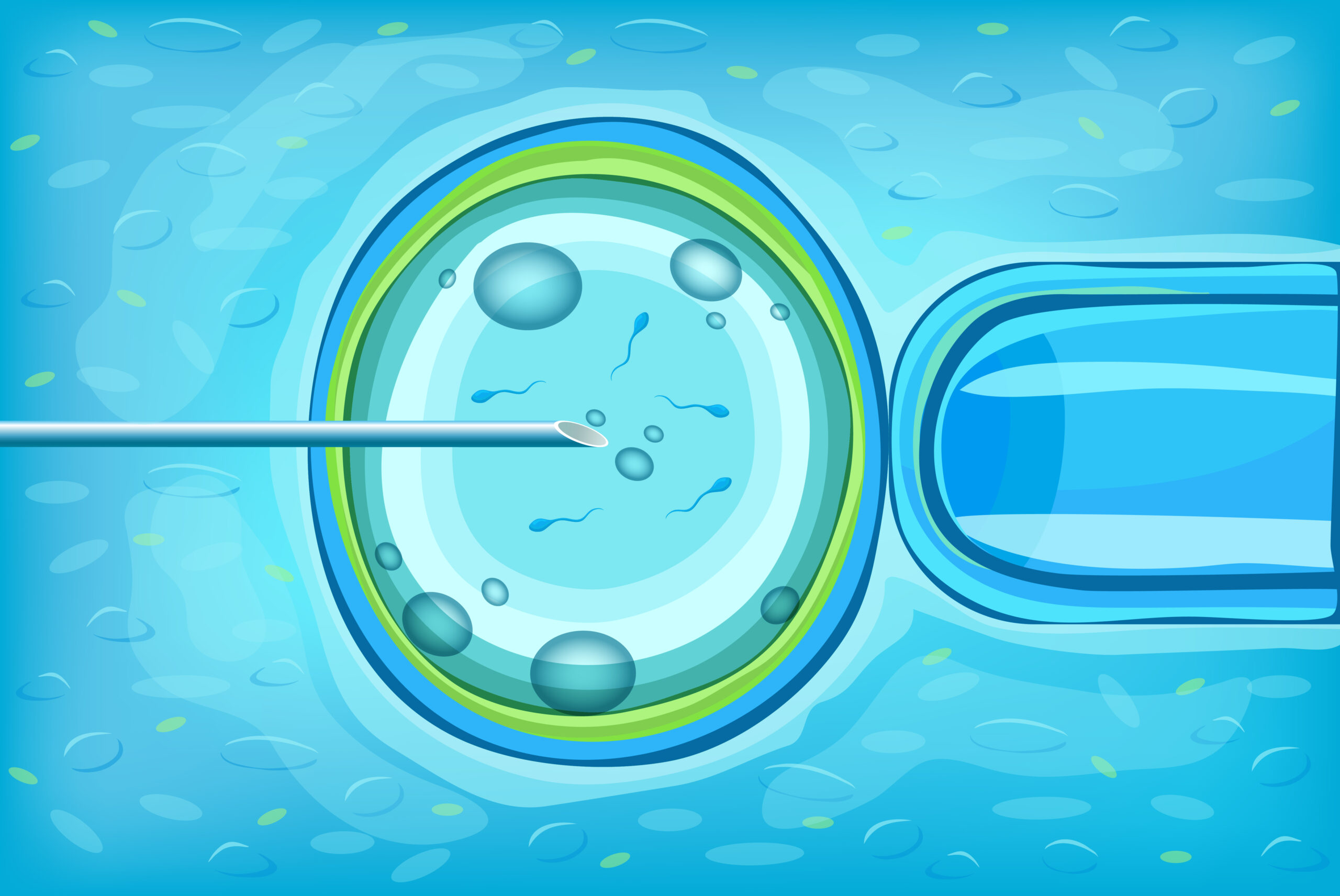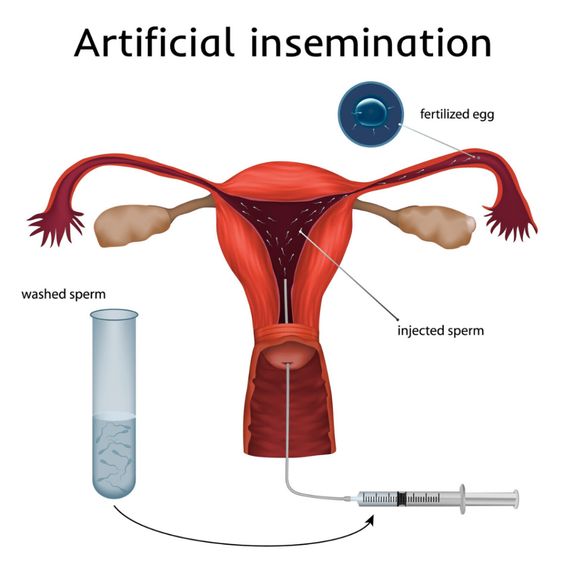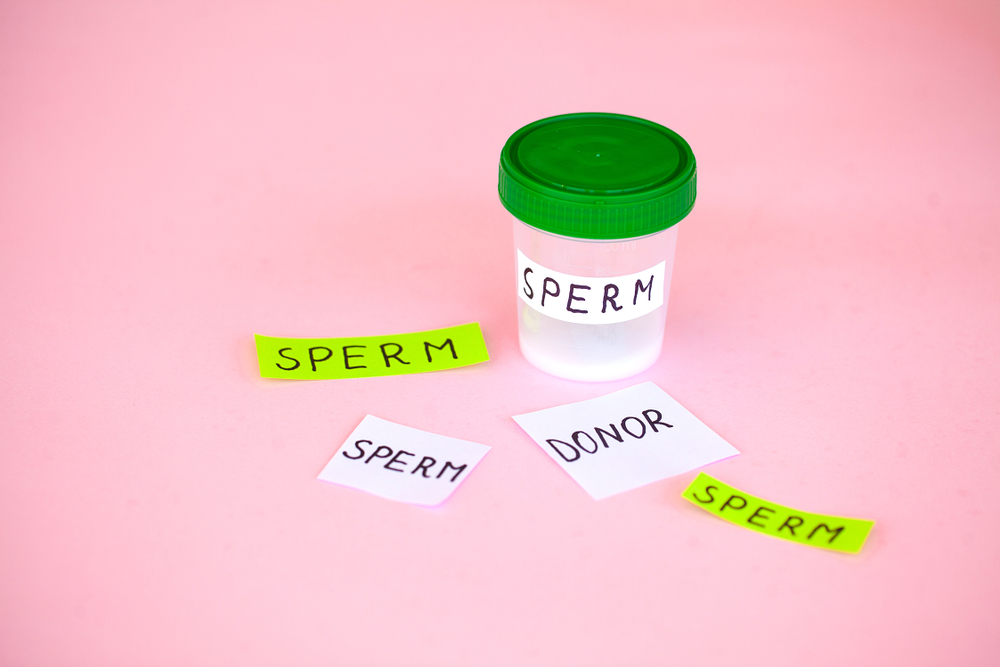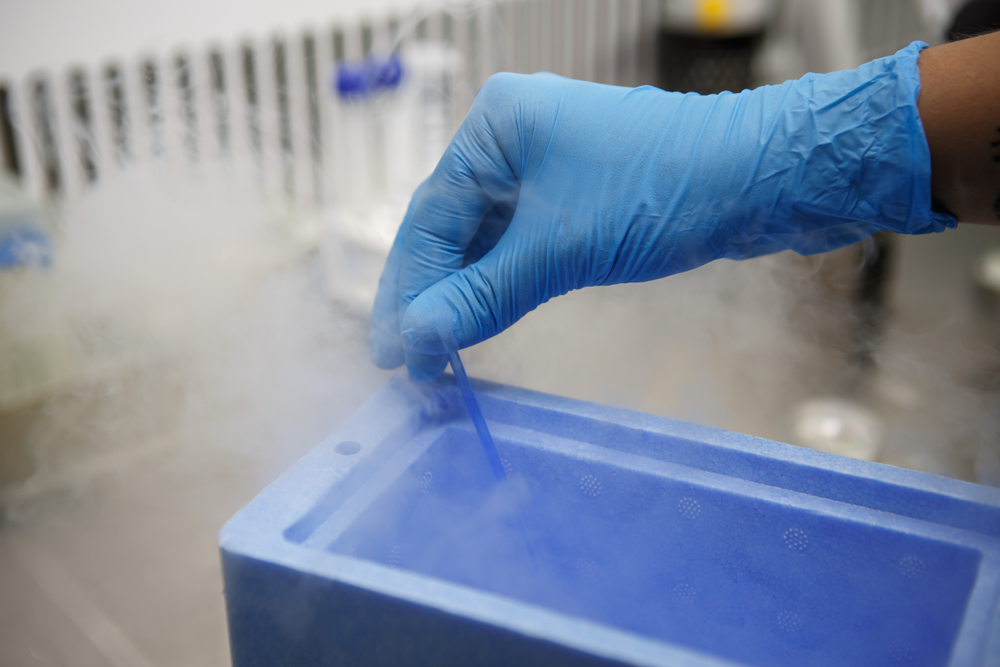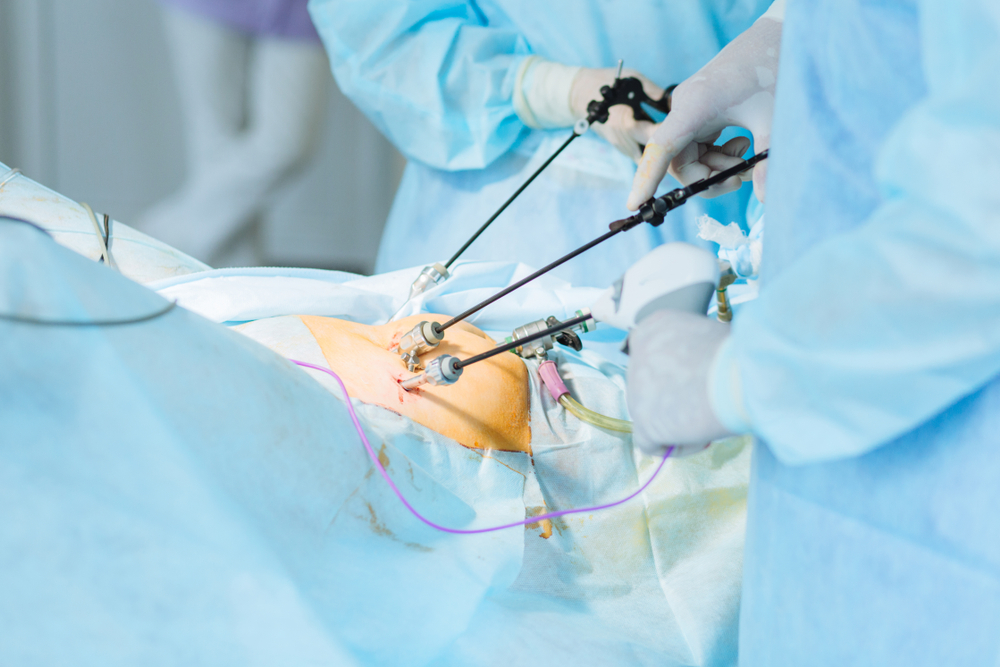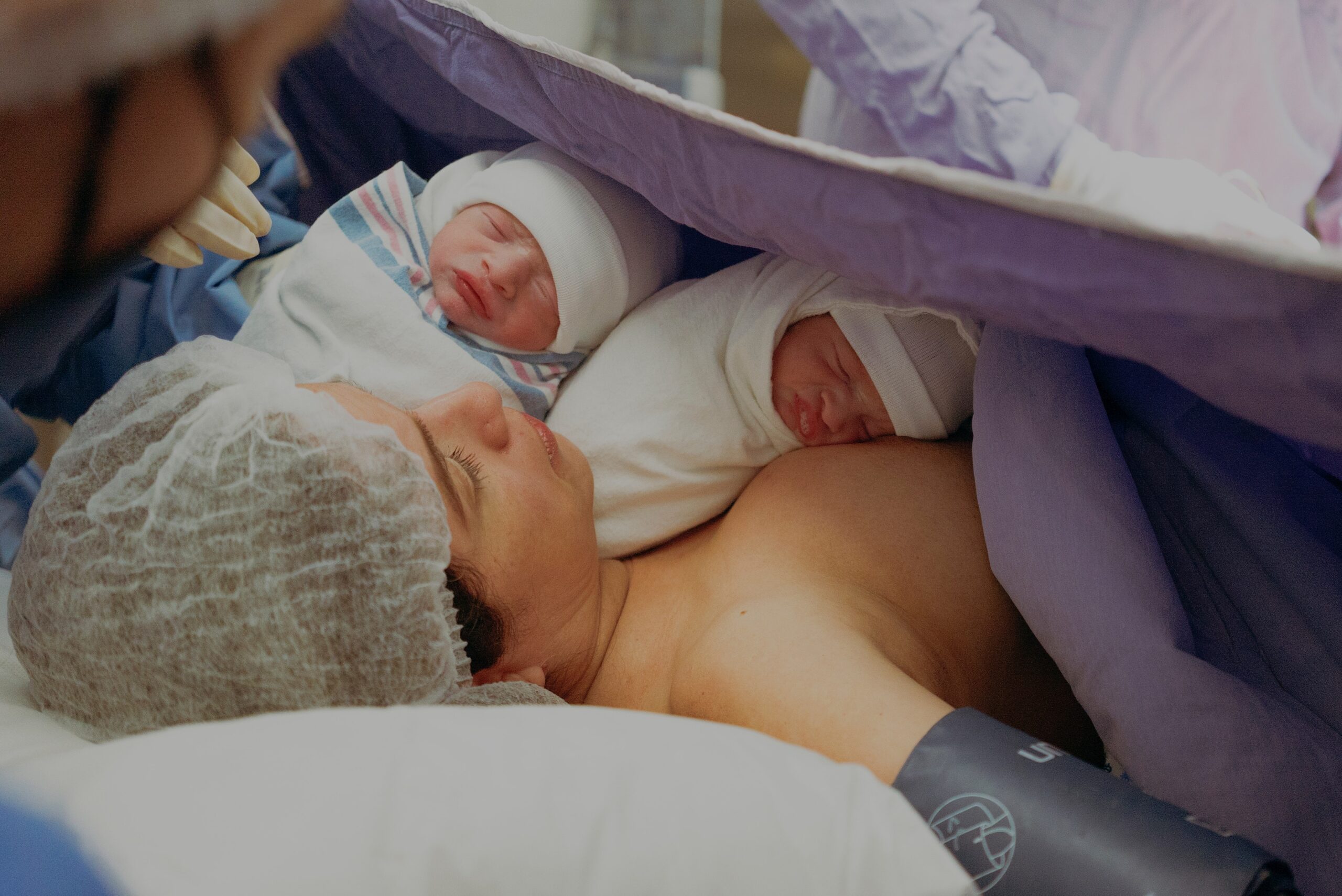






World-Class Technology
We are equipped with all the modern techniques and technologies for infertility treatments. Our top-class IVF lab has recently been upgraded as per the latest international recommendations.

Experienced Doctors & Staff
Dr. Lavleen Sodhi has been running the IVF centre since 2007 & it was the first in the region. With the best team of doctors & staff, we have successfully achieved results at par with the best institutes worldwide.

Patient-Friendly Environment
Dr. Sodhi's Healthcare Multispeciality Hospital and IVF Centre provides the perfect ambience and comfortable environment to all patients. Also, there is complete transparency in the treatment.
Empanelment
Our centre is empaneled with some of the best companies in the country.
- Icici Lombard
- Future Genera
- Med Save
- PARAMOUNT HEALTH CARE
- MEDI ASSIST INDIA
- UNIVERSAL SOMPO
- RELIANCE GENERAL INSURANCE
- BAJAJ ALLIANZ
- STAR HEALTH CARE
- MED HEALTH CLINIC
- MAX BUPA
- ADITYA BIRLA
- AKSHA TPA
- GHPL
- VIDAL HEALTH CARE
- TATA AIA
- FHPL
- KOTAK MAHINDRA
- VIDAL HEALTH CARE
- HDFC ERGO SAFEWAY
- BHARTI AXA
- VIPUL MED CORP
- PARK MEDICLAIM
- TTK
- GHPLTPA
- DHS
- MD INDIA
Why Choose Us
When it comes to your fertility care, you want the best. Dr. Sodhi's Healthcare Multispeciality Hospital and IVF Centre offers the best investigative procedures for infertility in men and women. We are equipped with world-class technology and state-of-the-art infrastructure which caters to infertility treatments like IUI, IVF, ICSI, Sperm donor, Egg Donor, Embryo Freezing, Blastocyst Culture and Transfer, Laparoscopy, Hysteroscopy, and more.

Dr. Sodhi’s Health Care Multispecialty Hospital & IVF Centre
Dr. Sodhi’s Health Care Multispecialty Hospital & IVF Centre has been running since 2007, employing the latest ‘State of the Art’ technologies for the treatment of infertile couples. The ultra-modern hospital is located in Mohali, a highly progressive township, adjoining Chandigarh.
Dr. LAVLEEN KAUR SODHI
DIRECTOR & Sr. CONSULTANT.
Obstetrician & Gynaecologist, Infertility specialist

Dr. Lavleen Kaur Sodhi is the Director, Sr. Consultant Obstetrician & Gynaecologist and Infertility specialist at Dr Sodhi’s Health Care Multispeciality Hospital & IVF Centre. She is also a visiting consultant at Fortis Hospital, Mohali & Cloud Nine Hospital, Chandigarh. Dr Lavleen Kaur has an illustrious academic record to back her present competencies. She completed her MD in 1995 from the prestigious P.G.I Chandigarh & her D.N.B.E from New Delhi, both in Obstetrics & Gynecology. During her M.B.B.S she also bagged the ‘Silver Medal’ in General Surgery in the final professional examination.
Happy Couples
Our Videos
Blog
 Preparing for the Big Day: Essential Tips for a Smooth Delivery January 17, 2025
Preparing for the Big Day: Essential Tips for a Smooth Delivery January 17, 2025Awaiting the welcome of your precious little one could be a joyful yet nervously exciting experience. This is certainly true for both experienced and new would-be parents. As you get ready for this wonderful day, it’s important to make sure everything goes right during the delivery.
From adopting the appropriate lifestyle to finding a reliable maternity hospital, you’d need to take care of every important aspect for a smooth delivery. To help you experience healthy and happy delivery, let’s first understand how you can search for a trusted care provider.
Choosing the Best Maternity Hospital in Chandigarh
Selecting the right maternity hospital is crucial for the safe delivery of your baby. If you’re a resident of Tricity (and nearby areas), you can easily find some of the excellent maternity care services in Chandigarh. These centres offer comprehensive prenatal and postnatal care with advanced facilities and a supportive environment for you and your baby. To make sure you always choose the right hospital, consider the following factors:
- The hospital’s expertise in high-risk pregnancies
- Availability of maternity care units
- Patient reviews
- Hygiene
- Insurance coverage (if applicable)
In addition, you should take a tour of the hospital and explore the available facilities. If possible, you also can speak to other parents who have had experiences there, and discuss your expectations with the hospital staff.
Preparing for the Big Day
Once you have chosen the best maternity hospital, it’s time to focus on welcoming your bundle of joy. Here are some important tips to ease your worries and prepare for your baby’s arrival.
1. Attend prenatal classes – Prenatal classes provide valuable information about childbirth techniques, breathing exercises, and coping strategies. Many of them are designed for both mothers and fathers to ensure a happy collective experience of childbirth. These classes will help you build confidence and prepare for the challenges of labour.
2. Create a birth plan – Discuss your birth preferences with your gynaecologist and put together a birth plan. It should include your pain management preferences, desired support people in the delivery room, and any special requests you may have.
3. Maintain a positive mindset – To psychologically prepare for child delivery, you must stay positive. Surround yourself with supportive people, and trust your body’s ability in bringing new life into the world. Watch entertaining content that keeps you cheerful and practice relaxation techniques like deep breathing exercises and meditation.
4. Eat well – You must feed your body right during pregnancy. Aim for a balanced diet packed with fruits, veggies, lean proteins, and whole grains. Stay hydrated and pay attention to your body’s signals. Eating well boosts your energy and nutrient levels required for a healthy delivery.
5. Stay active – Regular exercise during pregnancy enhances your strength and stamina. Try enjoyable and easy activities like prenatal yoga or walking. Learn more about exercises and activities that are safe during pregnancy. Simultaneously, consult a doctor or maternity care expert to receive the right guidance.
6. Get soothing massages: Relaxing, gentle massages during pregnancy work wonders! They soothe muscle tension, boost blood flow, and melt away stress and anxiety. Moreover, special techniques like perineal massage make you more flexible and help prevent tearing during childbirth. Massage also promotes relaxation and increases the production of oxytocin, the hormone responsible for contractions.
7. Pack your hospital bag – Prepare a bag with essential items such as comfortable clothing, toiletries, nursing bras, and items for your baby. Include important documents like your ID, insurance information, and birth plan. If you use special pillows or blankets suiting your comfort needs, don’t hesitate in carrying them along, too. Remember, your comfort is of the utmost importance during this crucial time.
8. Arrange transportation – Make sure you look for a reliable conveyance in advance to stay prepared for rushing to the hospital during labour pain. Keep emergency contact numbers handy and plan alternative routes in case of traffic or other unforeseen circumstances. You can also get in touch with the transportation services of the hospital you choose for delivery.
Bonus Tip – Feel at Ease with Temperature Therapy
To relieve discomfort before and after pregnancy, try heat and cold therapy. Apply a hot water bottle, heating pad, or microwaveable bag to your lower abdomen or back for warmth and relief. Alternatively, use a cold pack on your back to soothe and reduce back pain. Switching between these two therapies can help you find the most effective solution as per your need.
Get Comprehensive Fertility, Pregnancy, and Gynae Care
The Best Pregnancy and IVF Care
Your well-being is our top priority, and we at Dr. Sodhi’s Health Care Multispecialty Hospital & IVF Centre are here to support you at every step! Our team of skilled paediatricians is available 24/7 in the OPD for regular baby check-ups and vaccinations, and complete care for both mother and newborn.
In addition to being a trusted maternity hospital, we are the best IVF centre in Chandigarh. We have experienced fertility specialists, and make use of only the safe techniques and equipment. With a good reputation in the fertility and maternity care community, we have the highest records of success rates in Tricity. Our 15+ years of expertise have helped countless couples in overcoming fertility challenges. With hi-tech equipment and techniques, we provide many treatment options and facilities including:
- In vitro fertilisation (IVF) & IUI (Intrauterine Insemination)
- Egg & Sperm Donation
- 24-HOUR Paediatric Emergency
- Level II NICU
- Preimplantation Genetic Testing (PGT)
- Blastocyst Transfer
- Embryo Hatching
- Surrogacy & more.
The Best Gynae in Mohali
We are also the best gynaecologists in Chandigarh and Mohali, offering a wide range of gynaecological and provide personalised care. Our healthcare services include:
- Routine check-ups
- Menopause care and management
- Gynae ultrasound and follicular monitoring
- Maternity treatments and plans
- Preventive screenings
- Contraceptive counselling
- Management of gynaecological conditions, and more.
Ready to take the next step on your journey to parenthood? Contact us today to schedule a consultation or simply learn more about what we offer.
 How To Treat Cough and Cold During Pregnancy November 20, 2024
How To Treat Cough and Cold During Pregnancy November 20, 2024When you become pregnant, your immune system may get weak as compared to non-pregnant women. A runny nose, cough, and other symptoms of a cold can cause extreme discomfort, and most medicines are not safe during that time. Certain medications may harm the baby or cause issues for you, such as increasing your blood pressure.
This is why you need to be very careful with your health during pregnancy. But, sometimes due to weather changes or other reasons, you may get sick to treat the cold carefully. In this article, we will discuss the ways to treat cold and cough in pregnancy.
The Reason Behind Coughing During Pregnancy
Having a cough is normal in pregnancy and can occur at any time. The hormonal changes during this time make women more sensitive to allergies or viral diseases.
Try to avoid prolonged exposure to cold temperatures and exposure to heavily polluted areas. Also, make sure you drink at least 2 litres of water every day, warm drinks including warm drinks.
Excessive Coughing During Pregnancy
There are many causes of excessive coughing during pregnancy. It’s important to consult your gynaecologist or doctor for proper guidance. Here are some common causes:
- Respiratory Infections: Being pregnant, you will be more susceptible to respiratory infections like the flu, the common cold, asthma, and more.
- Allergies: In pregnancy, allergies can cause extreme coughing when exposed to allergens such as pollen, dust, or pet dander.
- Medicines: Sometimes pregnancy medicines cause a cough as a side effect.
What Helps A Cold And Cough When Pregnant?
Most coughs go away on their own in two or three weeks. But, if you are feeling discomfort with a cold and cough, then you can follow these tips for some relief:
Water
Drink at least 10 – 12 glasses of water a day. This keeps you hydrated and helps remove the mucus build-up. It is really helpful in treating mild colds at home.
Nutritional diet
You need to be very conscious about your diet during pregnancy. To maintain a strong immune system, make sure you eat a balanced diet full of nutrients and vitamins. Veggies like tomatoes, spinach, brinjals, and fresh fruits are high in antioxidants, that can boost your immune response against flu or viruses.
Get Adequate Rest
If you are suffering from cold in pregnancy, then it is very important that you take adequate rest. Resting is the best way to give your body time and energy to fight the infection. Napping two to three times a day is a good option to provide your body with a good amount of rest and recoup.
Breathing Exercises
Do some light exercises, if you feel up to it. Staying active warms up your body and makes you feel better, leading to an easier recovery. Exercising also builds immunity, so try a few pregnancy-safe exercises.
Home Remedies to Treat Cough and Cold at Home
Home remedies can be effective in alleviating the symptoms of a cough and cold. However, please note that these remedies are not a substitute for professional medical advice. If your symptoms are severe, persistent, or if you have any underlying health conditions, it’s crucial to consult a healthcare provider. Here are some home remedies that may help:
Steam Inhalation
Inhaling steam can help loosen mucus and ease congestion. You can do this by filling a bowl with hot water, placing a towel over your head, and inhaling the steam for several minutes.
Ginger
Ginger has anti-inflammatory properties and can help soothe a sore throat and reduce coughing. You can make ginger tea or add ginger to hot water with honey.
Ingredients:
- 1 cup hot water
- 1 tablespoon freshly squeezed lemon juice
- 1 tablespoon honey
- 1/2 teaspoon freshly grated ginger
Instructions:
- In a cup of hot water, add lemon juice, honey, and grated ginger.
- Stir well until the honey is dissolved.
- Sip this tea slowly to soothe your throat and provide relief from coughing.
Vitamin C
Foods high in vitamin C, such as oranges, strawberries, and bell peppers, may help boost your immune system.
Gargle with Salt Water
Gargling with warm salt water can soothe a sore throat and help reduce irritation.
Conclusion
In conclusion, when treating a cough and cold during pregnancy, it’s essential to prioritize safety and consult with a healthcare provider. While many home remedies like honey lemon tea, ginger hot water, steam inhalation, and salt water gargle can offer relief, it’s crucial to ensure they’re appropriate for your unique situation. Maintaining hydration and getting sufficient rest are essential, too. Remember, your doctor’s guidance is paramount, ensuring the remedies chosen are safe for both you and your baby. If symptoms persist or worsen, professional medical advice should be sought to ensure the best care for a healthy pregnancy.
Visit the best maternity hospital in Chandigarh and Mohali for a happy pregnancy. Book an appointment now!
 Pregnancy Myths vs. Facts: What You Need to Know October 15, 2024
Pregnancy Myths vs. Facts: What You Need to Know October 15, 2024Congratulations on embarking on this incredible journey called pregnancy. While it’s a time of joy and anticipation, it can also be a period filled with misconceptions and myths. In this article, we will separate fact from fiction and provide you with valuable information about pregnancy.
Whether you’re searching for the best fertility hospital in Chandigarh or other areas, the best IVF centre in Chandigarh, or a normal delivery clinic, this guide will help you make informed decisions.
Myth 1: You Can’t Get Pregnant While Breastfeeding
Fact: While breastfeeding may reduce the chances of getting pregnant, it’s not a foolproof method of contraception. It’s essential to use contraception or consult a healthcare professional like Dr.Lavleen Sodhi if you want to avoid another pregnancy soon after childbirth.
Myth 2: Morning Sickness Only Happens in the Morning
Fact: Morning sickness can strike at any time of the day. It’s not limited to mornings. If you experience severe nausea or vomiting during pregnancy, consult your gynaecologist for guidance on managing it.
Myth 3: Eating for Two Means You Should Double Your Food Intake
Fact: During pregnancy, you need extra nutrients, but you don’t need to eat double the amount of food. Focus on a balanced diet rich in fruits, vegetables, lean proteins, and whole grains to support your growing baby’s needs.
Myth 4: High Heels Are Safe to Wear During Pregnancy
Fact: High heels can affect your balance and increase the risk of falls, especially as your body changes during pregnancy. Opt for comfortable and supportive shoes to reduce the risk of accidents.
Myth 5: You Should Avoid Exercise During Pregnancy
Fact: Regular, moderate exercise is usually safe and can provide numerous benefits during pregnancy, such as improved mood and reduced back pain. Consult your healthcare provider for exercise recommendations tailored to your situation.
Myth 6: You Can Predict Your Baby’s Gender Based on the Bump Shape
Fact: The shape of your baby bump is influenced by factors like your body shape, baby’s position, and the number of pregnancies you’ve had. It has no scientific correlation with the baby’s gender.
Myth 7: Cesarean Sections Are the Easy Way Out
Fact: Cesarean sections are surgical procedures and come with their own set of risks and recovery challenges. They are typically recommended for medical reasons, and vaginal birth is often considered the safer option if there are no complications.
Myth 8: Home Births Are Safer Than Hospital Births
Fact: While some women choose home births, it’s essential to consider the potential risks. Hospitals have medical staff and equipment readily available to handle any emergencies that may arise during childbirth.
Myth 9: You Should Avoid Seafood Entirely During Pregnancy
Fact: While it’s essential to avoid high-mercury fish like shark and swordfish, most seafood is safe and highly beneficial during pregnancy. Fish like salmon and sardines are rich in omega-3 fatty acids, which promote your baby’s brain and eye development.
Myth 10: Heartburn During Pregnancy Means Your Baby Will Have Lots of Hair
Fact: There’s no scientific evidence to support the idea that heartburn during pregnancy is linked to a baby’s hair growth. Heartburn is a common symptom due to hormonal changes and the pressure of the growing uterus on the stomach.
Myth 11: You Should “Eat for Two” in Terms of Calories
Fact: While you need extra nutrients, you only need about 300-500 extra calories per day during pregnancy. Overeating can lead to excessive weight gain, which may be challenging to lose postpartum.
Myth 12: You Can Predict the Exact Due Date
Fact: Due dates are estimates and are not always accurate. Only about 5% of babies are born on their due date. Most pregnancies last between 37 and 42 weeks. Your healthcare provider will monitor your progress and adjust your due date if necessary.
Myth 13: Prenatal Vitamins Can Replace a Healthy Diet
Fact: Prenatal vitamins are essential to supplement any nutritional gaps, but they should not replace a balanced diet. Whole foods provide a wider range of nutrients that are essential for both you and your baby.
Myth 14: All Pregnant Women Experience the Same Symptoms
Fact: Pregnancy symptoms vary widely from woman to woman. Some may have morning sickness, while others may not. It’s essential to understand that everyone’s pregnancy journey is unique.
Myth 15: You Should Avoid Traveling During Pregnancy
Fact: Most women can travel safely during pregnancy. However, it’s crucial to discuss your travel plans with your healthcare provider, especially if you have any complications or are nearing your due date.
Myth 16: Natural Remedies Are Always Safe During Pregnancy
Fact: Natural doesn’t always mean safe during pregnancy. Some herbs and supplements can be harmful to your baby. Always consult your healthcare provider before trying any natural remedies.
In conclusion, pregnancy myths can be misleading, and it’s essential to rely on accurate information and the guidance of healthcare professionals. Whether you choose a normal delivery clinic or require assistance from the best fertility hospital in Chandigarh or the best IVF centre in Chandigarh, your health and your baby’s well-being should be your top priorities. Enjoy this incredible journey and take the time to educate yourself on the facts to make informed decisions.
 8 Best Baby Brain Activities – 3 to12 Months September 19, 2024
8 Best Baby Brain Activities – 3 to12 Months September 19, 2024Did you know that at birth, your baby’s brain already contains billions of neurons? Isn’t it incredible? However, the real magic happens when your little one starts to explore and interact with the world around them. The first year of a baby’s life is a period of surprising brain development. As they discover the world, neural pathways start forming and getting stronger in their little brain. This process is known as synaptogenesis.
During this time, your baby’s brain is super adaptable and can change and reorganize itself based on its experiences and what it learns. Your role as a parent is vital in supporting this process and helping your little one reach their full potential.
Nurturing Your Sweetheart With Fun Activities
So, are you excited to experience and enjoy the happiest and most enriching moments with your child? Here are a few engaging and fun physical activities to ensure healthy brain development in your babies (from 3-12 months).
Reading Together
Reading books together with your little one is a wonderful way to help them grow and learn! It’s not just about the words but the special bond you create and the magic of your voice truly capturing their attention. Even though they might not understand everything right now, they will absorb and learn from the way you talk and the sounds they hear. Picture books are the best. With large, high-contrast images and simple patterns, they evoke your baby’s visual senses.
Talking and Singing
These are among the best baby activities you can indulge in. The little ones are excellent listeners and can pick up on the nuances of language from an early age. Engaging in conversations and singing to your baby encourages language development and emotional connection. You can do this in a variety of ways:
- Speak to your baby using sweet, simple words and funny faces. Your bundle of joy would love this fun way of talking, and they’ll respond happily to it!
- Talk to your baby throughout the day about what you’re doing or how your day was. They’ll observe and pick up from your body language, facial expressions, and voice.
- Sing lullabies, nursery rhymes, and simple songs to your baby. You can do it while feeding them or putting them to sleep. This can drastically help in their overall memory development.
The Play of Reach and Grab
This activity is like a mini workout for your baby’s developing muscles and cognitive abilities. As they explore and grasp objects, their hand-eye coordination and fine motor skills improve. Encourage your baby to reach and grab for toys as they play. This would allow them to better control their movements and explore their surroundings more effectively. Fill their play area with safe and colorful toys that will stimulate their curiosity and help them.
Peek-a-Boo
It is a delightful game that helps babies understand object permanence and enhances social interactions. By hiding and revealing faces or objects, your baby can learn that things still exist even when out of sight. You can make peek-a-boo even more fun by using different toys or hiding in new places. Also, let your little angel take the lead sometimes and initiate the game. This would promote their cognitive skills, memory, and attention while strengthening their emotional bond with you.
Dancing Together
Bonding through dance with your baby is a beautiful way to connect and have fun! As you hold them gently and sway to the music, they feel the rhythm and movement, which is utterly enjoyable. This dancing experience nurtures emotional connection and trust, making them feel safe and loved. The gentle movements also stimulate their sense of balance and body awareness. So, put on some music and dance with your baby, creating precious memories. Try a variety of music styles, from hip-hop to waltz, and observe their natural response to the sounds and beats.
Musical Instruments
Introducing your baby to musical instruments can be a delightful and enriching experience. Offer safe instruments such as shakers or drums, allowing them to explore and create their own music. The act of shaking, tapping, or banging these instruments brings joy and enhances their sensory development and fine motor skills. Encouraging their creativity and self-expression through music fosters a sense of accomplishment and boosts their confidence. So, let their musical journey begin as your baby discovers the joy of making beautiful sounds with their own little hands!
Exploring Nature
Take your baby outdoors to explore nature and the world around them. Being in nature provides sensory experiences that aid in brain development. Take leisurely walks with your baby in a park or garden. Let them touch leaves, feel the grass under their feet, and observe birds and insects. Show them different varieties of flowers and plants, repeating their names often. You can also lie down with your baby and look up at the clouds. Talk about the shapes and colors you see, encouraging their imagination.
Building Bonds Independently
Spending time with siblings or other babies can be a valuable and enjoyable experience for your little one. It offers opportunities for social interaction and learning from their peers. As they observe and play with other children, they pick up essential social skills like sharing, taking turns, and cooperation. These interactions also foster language development, as they try to communicate and understand each other. Moreover, bonding with siblings creates a unique and special connection that contributes to their emotional development. This can give you also the much-needed ‘me’ time for yourself, especially after the postpartum. So, allow your baby to have these precious moments with siblings or playmates.
Final Thoughts
The first year of your baby’s life is a crucial time for brain development. Such acts of playing and interacting help shape their learning abilities. Each baby is unique, so take the time to observe their interests and preferences to adjust these infant activities that suit them best. As you engage in these activities, you create a supportive and loving environment for their overall mental, emotional, and physical growth. These early interactions and experiences will stay with them as they grow, laying the foundation for a lifetime of learning and exploration. So, treasure these special moments with your baby and embrace this precious time of their early development. And, don’t shy away from taking expert counseling and help, if needed.
 Knowing About Uterine Fibroids Causes, Signs & Treatment July 18, 2024
Knowing About Uterine Fibroids Causes, Signs & Treatment July 18, 2024Do you (or your partner experience) heavy menstrual bleeding or pain in the pelvis? These symptoms could indicate the presence of uterine fibroids. More commonly known as fibroids, these are tumours in the uterus or on its wall. Though they do not pose any threat to your survival, they can greatly affect your normal life functioning. They are common in women during their 30s and 40s but can develop at any age.
Interestingly, these uninvited roommates inside your womb may not always give clear signs of their presence. A healthy lifestyle may help you prevent it naturally, but only a medical professional can accurately diagnose, manage, and treat this disorder. To know more about this, you can book a consultation with an experienced doctor at one of the best maternity centres in Chandigarh and Mohali – Dr. Sodhi’s Health Care Multispecialty Hospital & IVF Centre.
Can Fibroids Affect Fertility And Pregnancy?
This is perhaps a million-dollar question for women with fibroids. Yes, fibroids can sometimes affect fertility. Fibroids may block the fallopian tubes or cause problems related to fertilization of the egg. During pregnancy, they can give rise to complications, miscarriages, premature birth, or the need for a cesarean section (C-section). However, many women still manage to have healthy pregnancies and deliveries.
What Causes Uterine Fibroids?
So far, no precise causes of uterine fibroids have been identified by doctors or researchers. But the following factors can be responsible for this condition:
- Hormones & Genetics – Uterine fibroids seemed to be influenced by genes and/or hormonal changes. The imbalance of estrogen and progesterone (hormones responsible for regulating the menstrual cycle) can also cause the growth of fibroids. Additionally, having a family history of this disorder can make you susceptible.
- Obesity and Unhealthy Diet – Your dietary habits and overall body weight play a great role in the development of fibroids. Deficiencies in the body caused by the absence of green vegetables, fruits, and dairy products in your diet are also the major causes.
- Increased ECM – The extracellular matrix (ECM) is a substance that acts as a binding material for cells. Any abnormal increase in the ECM causes stiffness in the cells that cause the growth of fibroids.
Some Signs and Symptoms
As discussed before, the formation of fibroids in your body may or may not always have clear signs. However, some of the most common symptoms are:
- Heavy Menstrual Bleeding: Excessive flow of blood during periods (menorrhagia) is one of the key symptoms of uterine fibroids. Usually, women with fibroids experience prolonged and heavy periods, which can lead to anemia too. But before you do the self-diagnosis, always make sure to consult a specialist and know the exact cause of this heavy bleeding.
- Pain During Intercourse: Your pelvic organs may feel pain or discomfort while having sex. This can be fibroids putting pressure on the pelvis muscles, also causing pain in your back and legs.
- Frequent Urination: The urge to urinate often can be related to large fibroids in your uterus. They can exert pressure on the bladder, resulting in increased frequency of urination.
- Other Symptoms: Abnormal or chronic vaginal discharge, bloating, constipation, and other such uneasiness related to lower abdomen areas may point to fibroids.
Common Diagnosis and Medical Assessment
If you think that you may have uterine fibroids or are experiencing any of the mentioned symptoms, it is necessary to get a diagnosis. The healthcare providers at Dr. Sodhi’s Multispeciality & IVF Center, the best maternity hospital in Mohali, use 4 main diagnostic techniques:
1. Hysteroscopy and Pelvic Examination: Hysteroscopy is a way for doctors to look inside a woman’s uterus using a tiny camera to help diagnose and treat problems like abnormal bleeding or growth. Additionally, they can perform a pelvic examination to check for fibroids by feeling the uterus and surrounding areas.
2. Ultrasound: Anything not clearly detected in hysteroscopy can be better understood with ultrasound. This can help confirm the presence of fibroids, determine their size, and find their specific location within the uterus.
3. MRI (Magnetic Resonance Imaging): Like the imaging tests mentioned above, an MRI scan also provides images of the uterus but in a more detailed way. This is specifically useful when your doctor plans a surgical intervention.
4. Hysterosonography: A sterile saltwater solution is poured into the uterus to expand its cavity. This offers a clearer visualization of the interior of the uterus, helping to assess the presence of fibroids.
After diagnosis, your doctor can talk to you about the best treatment choices based on your situation and what you prefer.
The Best Treatment Options For Fibroids
1. Medications: When fibroids cause problems, medicines can help. Birth control pills and similar hormones can make heavy periods and cramps better. Sometimes, doctors give a medicine called GnRH (gonadotropin-releasing hormone) agonists to shrink fibroids for a while by lowering estrogen. They can also prescribe pain pills to ease fibroid-related pain.
2. Minimally Invasive Procedures: If you have troublesome fibroid symptoms, there are less invasive ways to treat them. These methods try to either take out the fibroids or make them smaller without using major surgeries. Some common options include:
- Uterine Artery Embolization (UAE): During this procedure, a specialist uses X-rays to put small particles into the blood vessels that go to the fibroids. This blocks their blood supply, making them smaller and usually making the symptoms better.
- Endometrial Ablation: Endometrial ablation is a treatment for heavy periods caused by fibroids. In this simple procedure, a doctor uses things like laser, heat, or freezing to remove the lining of the uterus. It doesn’t get rid of the fibroids, but it can stop or greatly reduce heavy bleeding.
- Focused Ultrasound Surgery (FUS): FUS or MR-guided focused ultrasound, uses strong sound waves to warm up and get rid of fibroids. It’s a treatment that doesn’t need any cuts in your body and can be an option instead of surgery for some people.
- Radiofrequency ablation (RFA) – In this treatment, doctors use heat to shrink or get rid of the fibroids. It’s less invasive than surgery and can be an option for some fibroid cases.
3. Hysterectomy: It is a surgery doctors might suggest if fibroids are causing big problems that can’t be fixed with other treatments. They take out the uterus, which can get rid of the fibroids, but it also means you can’t have kids anymore.
4. Myomectomy: A myomectomy is an operation where a surgeon takes out the fibroids but keeps the uterus. It’s a good option if you want to have babies or don’t want to remove your uterus.
Apart from medical treatments, changing your lifestyle can help with fibroid symptoms. Eating well and exercising regularly can make you feel better overall and might reduce your symptoms. Managing stress with things like yoga or meditation can also help because stress can make fibroid problems worse.
Get Treated at the Best Maternity Hospital in Chandigarh
Getting medical help quickly and finding out what’s going on with your uterus is important when dealing with uterine fibroids. You must have open and thorough discussions with reliable doctors to determine the most suitable treatment plan for your situation. We at Dr. Sodhi’s Health Care Multispecialty Hospital & IVF Centre have 15+ years of experience in helping women live the healthy and happy life they deserve.
We are one of the most trusted maternity and fertility hospitals in Mohali and Chandigarh. Our group of experienced doctors has helped countless women in fighting with uterine fibroids. We also have modern equipment and methods to provide a variety of medical treatments and services, including:
- In vitro fertilization (IVF) & IUI (Intrauterine Insemination)
- Egg & Sperm Donation
- 24-HOUR Pediatric Emergency
- Level II NICU
- Preimplantation Genetic Testing (PGT)
- Blastocyst Transfer
- Embryo Hatching
- Surrogacy & more.
Don’t ignore your symptoms and book an appointment with us today!
 Is Infertility Genetic – Complete Guide May 17, 2024
Is Infertility Genetic – Complete Guide May 17, 2024During consultations at fertility clinics, most people often inquire about their reproductive health, “Can infertility be genetic?”
Discovering infertility can be an emotionally challenging experience for anyone. But, the dedicated team at Dr Sodhi’s Health Care and IVF Centre, Mohali, Punjab, India, is here to support you throughout your fertility journey. In this guide, we’ll delve into the fundamental genetic factors contributing to infertility.
Keep reading!
Genetic Factors Behind Male And Female Infertility
Traditionally, fertility and genetics were considered as distinct areas, primarily addressed when couples had a family history of inherited genetic conditions. But now, with the evolution of science and technology, a lot of research is happening on the genetic factors in fertility. In the majority of cases, this can be the reason behind failed IVF cycles.
Book an Appointment with Dr. Lavleen Sodhi for all your Fertility concerns!
Couples experiencing infertility can often be associated with genetic factors. From inherited chromosomal abnormalities to gene mutations, both males and females have different outcomes from both these factors. Here is how genetic factor affcets fertility:
- Abnormalities in the genes of a male, female or both can cause infertility such as implantation failure or miscarriage. It can also cause child birth defects.
- There are three categories of genetic abnormalities that can impact the development of an embryo: Chromosomal abnormalities, Single gene disorders, such as cystic fibrosis, and Genomic imprinting disorders.
- Certain genetic disorders can lead to sperm abnormalities in males, while genetic conditions in females can give rise to ovulation difficulties, ultimately leading to infertility in affected individuals.
Genetic counselling is available at Dr Sodhi’s Health Care Multispeciality Hospital and IVF Center to provide support so you can make an informed decision.
Also, fertility specialists in Mohali try to avoid the effects of gene disorders through preimplantation genetic testing (PGT) during IVF procedures. What is PGT?
Preimplantation Genetic Testing (PGT) is a medical procedure used during in vitro fertilization (IVF) to assess the genetic makeup of embryos before they are implanted in the uterus. It involves the following types of testing:
Preimplantation Genetic Diagnosis (PGD): It is a genetic testing procedure performed during in vitro fertilization (IVF) to assess the genetic characteristics of embryos before they are implanted in the uterus. PGD is primarily used to screen for specific genetic abnormalities or conditions, as well as to select embryos with desired genetic traits.
Preimplantation Genetic Screening (PGS): This is a laboratory technique used during in vitro fertilization (IVF) to examine embryos for chromosomal abnormalities. PGS is primarily focused on assessing the overall chromosomal health of embryos and is often utilized to improve the chances of a successful pregnancy in cases of advanced maternal age, recurrent miscarriages, or multiple failed IVF attempts.
PGT-A (Preimplantation Genetic Testing for Aneuploidy): This type of testing checks for numerical chromosomal abnormalities, such as aneuploidy, which is an abnormal number of chromosomes in an embryo. PGT-A helps identify embryos with the correct number of chromosomes, increasing the chances of a successful pregnancy and reducing the risk of miscarriage.
PGT-M (Preimplantation Genetic Testing for Monogenic Disorders): PGT-M is used to detect specific genetic mutations or single-gene disorders that a couple may carry, such as cystic fibrosis, sickle cell anemia, or Huntington’s disease. It allows for the selection of embryos that do not carry the specific genetic mutation, reducing the risk of passing on the disorder to the offspring.
PGT-SR (Preimplantation Genetic Testing for Structural Rearrangements): PGT-SR is utilized when one or both partners have structural chromosomal abnormalities, like translocations or inversions. This testing helps identify embryos with balanced chromosomal arrangements, increasing the chances of a successful pregnancy.
PGT is a valuable tool for couples at risk of passing on genetic disorders to their children or for those who have experienced recurrent pregnancy loss or infertility. It enables the selection of embryos with a higher likelihood of being genetically healthy, improving the chances of a successful pregnancy and the birth of a healthy child.
Fertility specialists in Mohali try to avoid the effects of gene disorders through preimplantation genetic testing (PGT) during IVF procedures.
Is There Genetic Blood Test?
A genetic blood test before fertility treatment is commonly performed to assess the genetic health of prospective parents. This test is typically referred to as “genetic carrier screening” or “preconception genetic testing.”
A blood sample is taken from each partner, and their DNA is analyzed to identify any known genetic mutations associated with inherited disorders. The test typically looks for mutations linked to conditions like cystic fibrosis, sickle cell anemia, Tay-Sachs disease, and many others, depending on the test panel used.
What are other possible reasons for infertility?
Several factors can contribute to infertility, and in women, one prevalent factor is the presence of ovulation disorders. Polycystic ovarian syndrome (PCOS) is a common condition that can disrupt the ovulation process. Genetic predisposition plays a significant role in the development of PCOS, and it tends to be hereditary. Therefore, if your mother had PCOS, you may have a higher risk of experiencing it as well, potentially affecting your fertility.
Infertility can also arise from other issues affecting the reproductive organs, such as blocked fallopian tubes, which may be caused by conditions like endometriosis (a condition where tissue similar to the uterine lining grows outside the uterus) or pelvic infections. Uterine fibroids, which are growths in the uterine muscle, can also contribute to infertility. It’s worth noting that both endometriosis and uterine fibroids can have a hereditary component, running in families.
In women, age is also an important factor in infertility. The probability of a woman getting pregnant during a specific menstrual cycle starts to decrease as she enters her early 30s. As she continues to age, not only does the quantity of her eggs diminish, but the proportion of abnormal eggs also increases, consequently elevating the risk of miscarriages and the occurrence of Down syndrome. Specific genetic conditions, such as fragile X syndrome, are associated with the premature depletion of eggs and are frequently linked to a family history. For men, infertility is most commonly attributed to the quantity and quality of sperm.


